
views
APA

Start with the author's last name and first initial. In APA style, the author's name is inverted, meaning you list the last name first. Place a comma after the last name, then the first initial. Separate the names of multiple authors with commas, using an ampersand (&) before the last name. For example: "Kringle, K., & Frost, J."

Provide the year the paper was published. If the paper was published in an academic journal, include the year in parentheses after the authors' names. If the paper was unpublished, such as a print-only thesis or dissertation, use the year the paper was written. For example: "Kringle, K., & Frost, J. (2012)." If the date, or any other information, are not available, use the guide at https://blog.apastyle.org/apastyle/2012/05/missing-pieces.html.
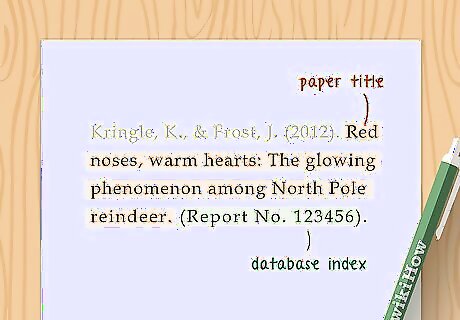
List the title of the research paper. Use sentence capitalization to write out the full title of the research paper, capitalizing the first word and any proper names. If it has a subtitle, place a colon and capitalize the first word of the subtitle. For example: "Kringle, K., & Frost, J. (2012). Red noses, warm hearts: The glowing phenomenon among North Pole reindeer." If you found the research paper in a database maintained by a university, corporation, or other organization, include any index number assigned to the paper in parentheses after the title. For example: "Kringle, K., & Frost, J. (2012). Red noses, warm hearts: The glowing phenomenon among North Pole reindeer. (Report No. 1234)."
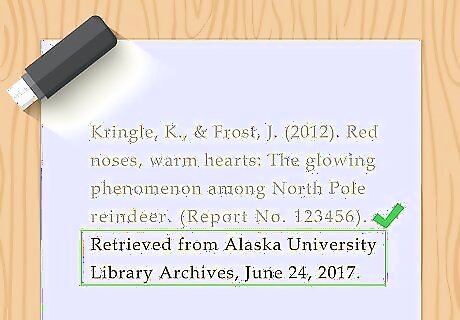
Include information on where you found the paper. If the paper was published in an academic journal or magazine, use the same format that you would for any other article. For unpublished articles, provide as much information as possible to direct your readers to the research paper. For example: "Kringle, K., & Frost, J. (2012). Red noses, warm hearts: The glowing phenomenon among North Pole reindeer. (Report No. 1234). Retrieved from Alaska University Library Archives, December 24, 2017."
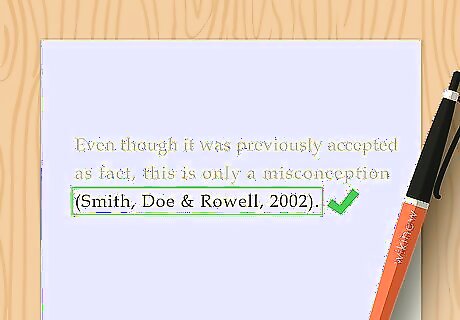
Use a parenthetical citation in the body of your paper. When you write a statement that comes from the research paper, include the last names of the authors along with the year the paper was published or written. For example: "(Kringle & Frost, 2012)." If there was no date on the research paper, use the abbreviation n.d.: "(Kringle & Frost, n.d.)."
Chicago

Start with the authors' names. Invert the first author's name so that the last name appears first. Subsequent authors' names should be written in regular order. Spell out first names. Use a middle initial if it is provided on the research paper. For example: "Kringle, Kris, and Jack Frost."
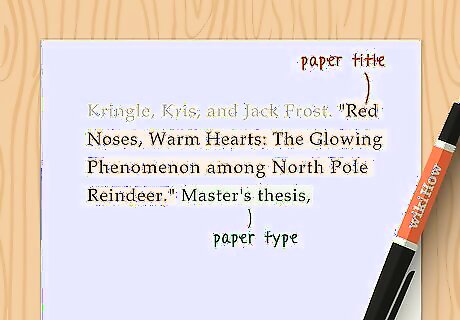
List the title of the research paper. The title of the paper is written in title case, meaning that most adjectives, nouns, and verbs are capitalized, but articles and conjunctions are not. Titles are enclosed in quotation marks. Include the type of paper after the title. For example: "Kringle, Kris, and Jack Frost. "Red Noses, Warm Hearts: The Glowing Phenomenon among North Pole Reindeer." Master's thesis."

Provide the place and year of publication. If the paper was unpublished, the date you use will be the year the paper was written. If the paper was published, you'll follow the general rules for citing an article in Chicago style. For example: "Kringle, Kris, and Jack Frost. "Red Noses, Warm Hearts: The Glowing Phenomenon among North Pole Reindeer." Master's thesis, Alaska University, 2012."
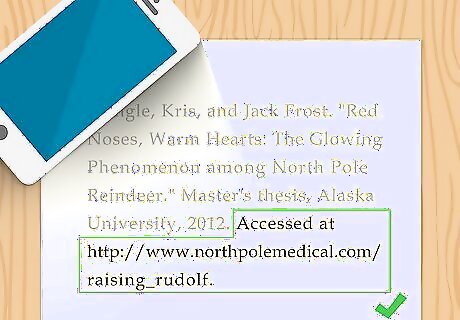
Include any additional information necessary to locate the paper. If you accessed the paper online, you should add a direct URL so your readers can go directly to the paper as you found it. If the paper has a database number assigned to it, that can also help readers locate the paper more easily. For example: "Kringle, Kris, and Jack Frost. "Red Noses, Warm Hearts: The Glowing Phenomenon among North Pole Reindeer." Master's thesis, Alaska University, 2012. Accessed at https://www.northpolemedical.com/raising_rudolf."
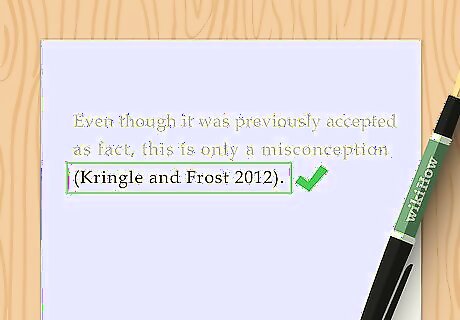
Follow your instructor's guidance regarding in-text citations. Chicago and Turabian (a simplified version of Chicago style) style research papers may use either footnotes or parenthetical citations to cite references in the body of your paper. Footnotes are essentially the same as the full citation, although the first and last names of the authors aren't inverted. For parenthetical citations, Chicago uses the Author-Date format. For example: "(Kringle and Frost 2012)."
MLA

Start with the authors of the paper. Invert the names of the authors so that you list their last names first, followed by their first names. Spell out first names. Separate multiple authors with commas. For example: "Kringle, Kris, and Frost, Jack."
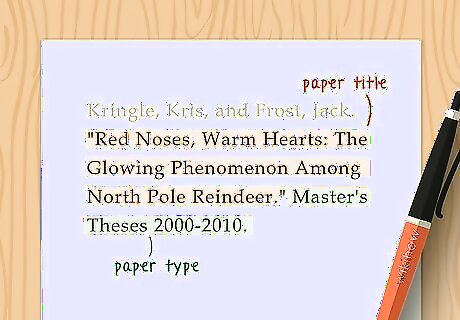
Provide the title of the research paper. In MLA, enclose the title and subtitle in quotation marks. Capitalize most words, but not short articles or conjunctions unless they are the first word of the title or subtitle. For example: "Kringle, Kris, and Frost, Jack. "Red Noses, Warm Hearts: The Glowing Phenomenon Among North Pole Reindeer.""
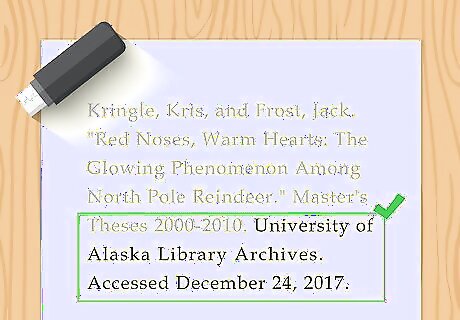
Identify the paper's location. MLA operates on the concept of containers. Your paper is part of a larger whole, which may be part of an even larger whole. In your citation, list the smallest container first, followed by the larger, all the way up to the largest. For example, suppose you found the paper in a collection of paper housed in university archives. Your citation might be: "Kringle, Kris, and Frost, Jack. "Red Noses, Warm Hearts: The Glowing Phenomenon Among North Pole Reindeer." Master's Theses 2000-2010. University of Alaska Library Archives. Accessed December 24, 2017."
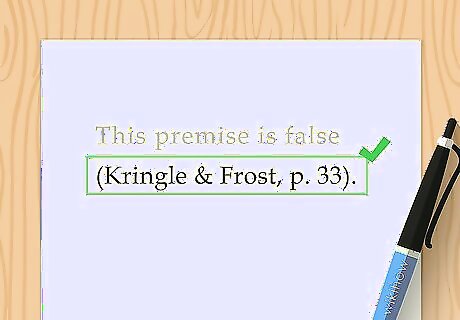
Use parenthetical references in the body of your work. After you mention something in your paper that requires you to cite the research paper, place the names of the authors in parentheses along with the page number where the information appears. For example: "(Kringle & Frost, p. 33)."
AMA
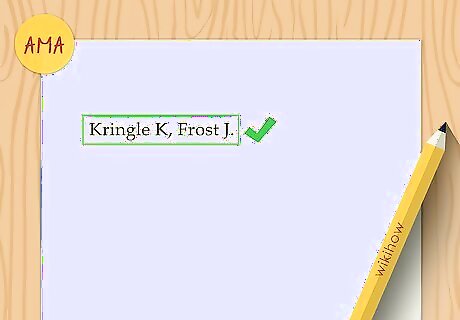
Start with the author's last name and first initial. An AMA citation begins with the names of the authors or editors of the paper. Use no punctuation apart from a comma between names. If there are more than 6 authors, list the first 3 followed by the abbreviation "et al." For example: "Kringle K, Frost J."
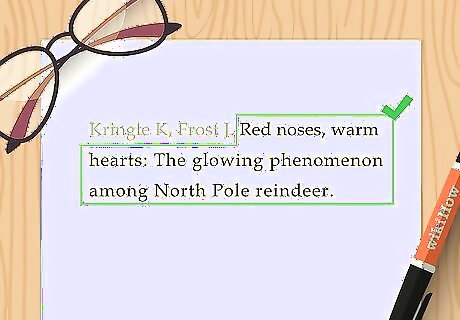
Provide the title in sentence case. In sentence case, you only capitalize the first word and any proper nouns included in the title of the article. If there is a subtitle, include it after a colon with an initial capital at the beginning of the subtitle. For example: "Kringle K, Frost J. Red noses, warm hearts: The glowing phenomenon among North Pole reindeer."
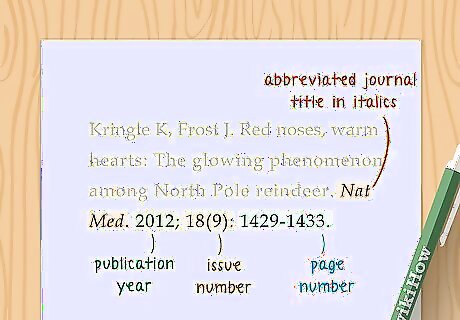
Include journal information if the paper was published. A research paper that was published in an academic journal should be treated like any other journal article. Include the abbreviated title of the journal in italics, followed by the year of publication, issue number, and pages where the paper appears. For example: "Kringle K, Frost J. Red noses, warm hearts: The glowing phenomenon among North Pole reindeer. Nat Med. 2012; 18(9): 1429-1433."

Provide location information if the paper hasn't been published. If the paper was presented at a conference or symposium, include information about the conference where it was presented. If you found it online, provide a direct link and the date you accessed it. For example, if you're citing a paper presented at a conference, you'd write: "Kringle K, Frost J. Red noses, warm hearts: The glowing phenomenon among North Pole reindeer. Oral presentation at Arctic Health Association Annual Summit; December, 2017; Nome, Alaska." To cite a paper you read online, you'd write: "Kringle K, Frost J. Red noses, warm hearts: The glowing phenomenon among North Pole reindeer. https://www.northpolemedical.com/raising_rudolf"
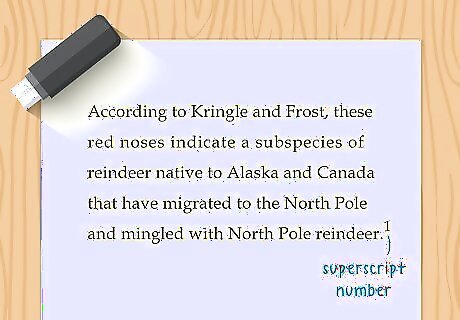
Use superscript numbers in the body of your paper. For in-text citations, include a superscript number after the information for which you need a citation. You'll build your bibliography as you write your paper, with your citations listed in the order they are noted in your text. For example: "According to Kringle and Frost, these red noses indicate a subspecies of reindeer native to Alaska and Canada that have migrated to the North Pole and mingled with North Pole reindeer."











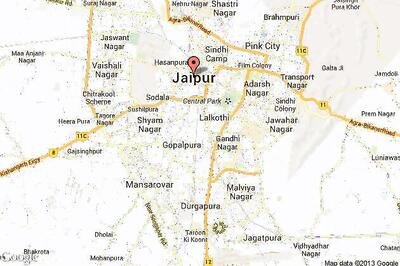








Comments
0 comment